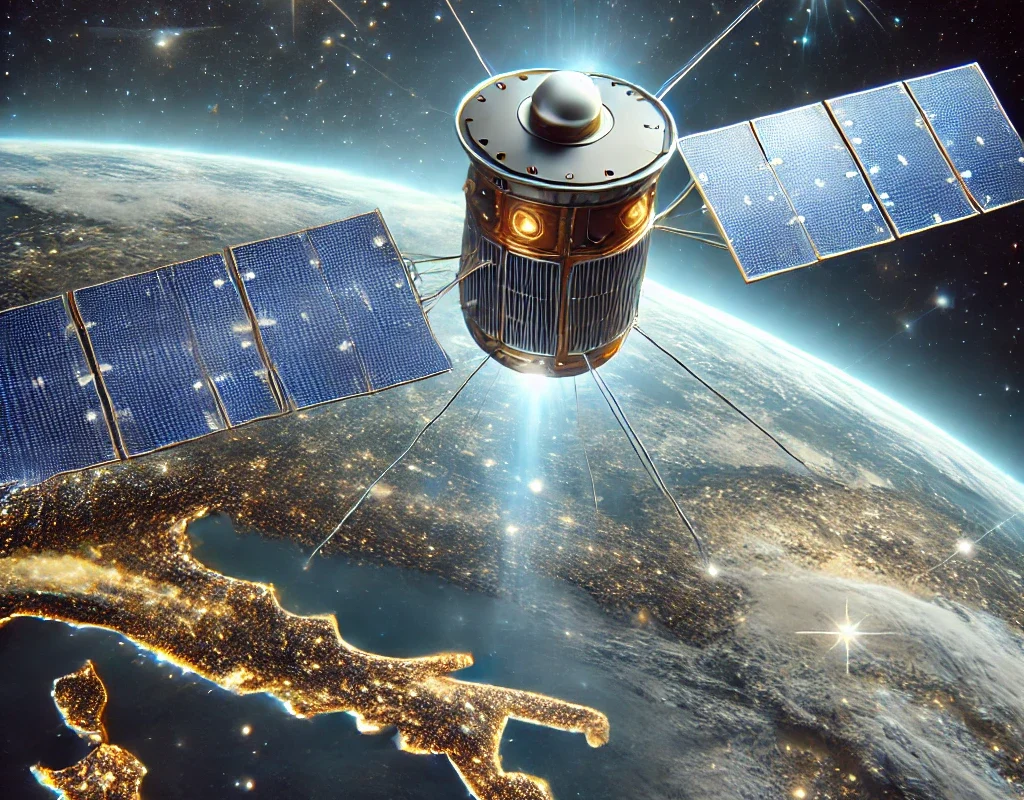In 2024, Starlink, SpaceX’s ambitious satellite-based internet service, is making waves across the globe, including Nigeria. As part of Elon Musk’s vision to provide high-speed internet to underserved areas, Starlink has gained popularity for offering connectivity to rural regions that traditional internet service providers (ISPs) struggle to serve. However, while Starlink offers impressive technological advancements, its entry into Nigeria hasn’t been without complications. The Nigerian Communications Commission (NCC), the regulatory body overseeing telecommunications, has raised concerns over Starlink’s compliance with local regulations, leading to debates about pricing, licensing, and the future of internet access in the country.
This article explores the challenges Starlink faces in Nigeria, its potential for bridging the digital divide, and how regulatory issues are shaping the service’s success.
What is Starlink?
Starlink is a satellite internet constellation project developed by SpaceX that aims to provide high-speed internet access to locations where traditional ISPs are either unavailable or unreliable. Using a constellation of low Earth orbit (LEO) satellites, Starlink offers speeds ranging from 50 Mbps to 150 Mbps, with the promise of more stability and global coverage in the future.
This has been a game-changer, particularly for rural areas where traditional broadband infrastructure is limited or prohibitively expensive to install. In many African countries, including Nigeria, poor internet infrastructure has stymied growth in key areas such as e-commerce, education, and healthcare. This is where Starlink can play a transformative role, but the journey hasn’t been entirely smooth.
The Digital Divide in Nigeria: Why Starlink Matters
Nigeria, Africa’s largest economy, boasts a population of over 200 million people. Yet, the internet penetration rate hovers around 47%, with a significant portion of the population, particularly in rural areas, lacking access to reliable and affordable internet(
). The country’s growing middle class, coupled with a surge in digital services such as online banking, streaming, and remote work, underscores the urgent need for better internet infrastructure.
Traditional ISPs have faced considerable challenges in expanding services to remote areas due to high costs and difficulties with laying fiber-optic cables across vast terrains. For instance, in many parts of northern Nigeria, residents have to rely on unstable and slow connections, making digital services difficult to access. Here, Starlink’s satellite-based model offers an attractive alternative, bypassing the need for physical infrastructure by connecting directly via satellite.
Starlink’s Pricing Controversy: The NCC’s Role
Although the potential for Starlink to bridge the digital divide in Nigeria is enormous, the service has faced regulatory roadblocks. In mid-2024, the Nigerian Communications Commission (NCC), the regulatory body in charge of telecommunications, raised concerns about Starlink’s pricing structure. In response to rising inflation, Starlink hiked its subscription fees and hardware costs without securing the required regulatory approval(
)(
).
The price hike was significant—Starlink raised its monthly subscription fee from ₦38,000 to ₦75,000 and the hardware cost from ₦440,000 to ₦590,000, citing rising inflation and economic challenges(
). The NCC pushed back, arguing that Starlink violated sections of the Nigerian Communications Act of 2003, which mandates that tariff adjustments be approved by the Commission. The NCC was particularly concerned about the unilateral nature of the price changes, as this contravened local regulations governing telecom tariffs.
This led to a temporary standoff, with the NCC threatening to suspend Starlink’s license. While the NCC eventually retracted its statement, the episode highlighted ongoing tensions between global tech companies like SpaceX and national regulatory bodies. Many local ISPs and telecom operators also voiced concerns, accusing the NCC of allowing Starlink to adjust prices while preventing domestic operators from doing the same.
Starlink’s Impact on Local ISPs
The entry of Starlink into the Nigerian market has raised concerns about its impact on local ISPs. The primary worry is that Starlink’s advanced technology and direct-to-consumer model could disrupt local markets. Traditional ISPs, many of which already struggle to expand in rural areas, may find it challenging to compete with Starlink’s superior speeds and global reach(
).
Some industry analysts argue that Starlink is primarily serving wealthier customers who can afford its steep prices, thereby creating a digital divide between affluent urban users and those in less economically robust areas. With hardware costs approaching ₦590,000 and monthly fees at ₦75,000, many Nigerians may find Starlink’s services prohibitively expensive(
).
This pricing model places Starlink out of reach for low-income consumers, who are already burdened by Nigeria’s high cost of living. Consequently, local ISPs may continue to serve the bulk of the population while Starlink caters to a niche market. However, if Starlink reduces its prices in the future or partners with the government to offer subsidized services, it could eventually become a more accessible option for a broader audience.
The Regulatory Future of Starlink in Nigeria
The future of Starlink in Nigeria is intricately tied to how well it can navigate the country’s regulatory environment. As a global company, SpaceX must work closely with national governments to ensure that its services comply with local laws. In Nigeria, the NCC plays a pivotal role in determining the success of telecom operators by regulating pricing, spectrum allocation, and service quality standards(
).
The NCC’s intervention regarding Starlink’s pricing is a reminder that no matter how advanced a company’s technology, it must respect local regulatory frameworks. The Commission has reiterated that while it welcomes innovation, companies must seek regulatory approval for price adjustments and adhere to local laws. Failure to do so could result in penalties, license suspensions, or even bans from the market.
Starlink’s success in Nigeria will depend on how effectively SpaceX can engage with regulators, adjust its pricing model to align with local economic conditions, and ensure that its services are accessible to a wide range of consumers. Additionally, it must address concerns related to data privacy and national security, given that satellite-based services are less subject to national oversight compared to terrestrial ISPs(
).
Conclusion: Can Starlink Transform Internet Access in Nigeria?
There’s no doubt that Starlink has the potential to revolutionize internet access in Nigeria, particularly in rural and underserved areas. By offering high-speed satellite internet, Starlink can help bridge the country’s digital divide, empowering millions of Nigerians to participate in the digital economy.
However, for this potential to be fully realized, several hurdles must be overcome. First, Starlink needs to find a pricing model that aligns with the economic realities of most Nigerians. While the service’s superior speed and reliability justify its premium price in developed markets, the same model may not be sustainable in Nigeria unless there are significant reductions in cost or subsidies for low-income users.
Second, SpaceX must work closely with the Nigerian Communications Commission to ensure compliance with local laws and regulations. The NCC’s concerns over pricing and Starlink’s unilateral decision-making highlight the need for more transparent communication and collaboration.
Finally, Starlink’s entry into the Nigerian market should not come at the expense of local ISPs, which have worked hard to expand internet access despite numerous challenges. A balanced approach that fosters competition, encourages innovation, and ensures that no segment of the population is left behind will be essential for the future of internet connectivity in Nigeria.
If Starlink can overcome these challenges, it could become a cornerstone of Nigeria’s internet landscape, helping to create a more connected and prosperous future for all.



